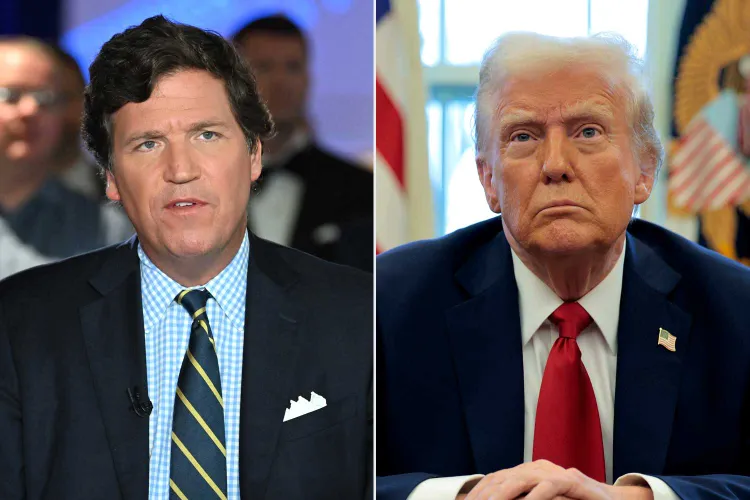Conservative commentator Tucker Carlson issued a stark warning about potential threats to free speech in the wake of Charlie Kirk’s assassination, suggesting that the Trump administration could leverage the tragedy to impose limits on political expression.
On the Sept. 16 episode of Tucker Carlson LIVE, Carlson urged viewers to remain vigilant. “You hope Charlie Kirk’s death won’t be used by a group we now call bad actors to create a society that was the opposite of the one he worked to build,” Carlson, 56, said, referencing Kirk’s efforts to engage with differing viewpoints.
Carlson, who has long championed free speech protections, cautioned that lawmakers could use Kirk’s killing to advance hate speech legislation. “You hope that a year from now, the turmoil we’re seeing in the aftermath of this murder won’t be leveraged to bring hate speech laws to this country,” he said. “And trust me, if it does — if that happens — there is never a more justified moment for civil disobedience than that, ever. And there never will be.”
The commentator warned that the erosion of speech rights could carry profound consequences. “Because if they can tell you what to say, and they’re telling you what to think, there is nothing they can’t do to you, because they don’t consider you human,” Carlson added.
His comments came days after the death of Kirk, a 31-year-old conservative activist fatally shot during his American Comeback tour at Utah Valley University. In response, Trump-appointed Attorney General Pam Bondi stated that the Justice Department would “absolutely target” anyone engaging in “hate speech,” a declaration widely perceived as a potential threat to critics of the administration.
Kirk himself had previously addressed the concept of hate speech in a 2024 social media post: “Hate speech does not exist legally in America. There’s ugly speech. There’s gross speech. There’s evil speech. And ALL of it is protected by the First Amendment. Keep America free.”
The controversy surrounding Kirk’s death intensified when ABC indefinitely pulled Jimmy Kimmel Live! following a threat from Nexstar, the largest television station owner in the United States, which objected to Kimmel’s Sept. 15 monologue. The segment criticized Trump supporters’ reactions to Kirk’s assassination, suggesting — without evidence — that suspected shooter Tyler Robinson had political affiliations with the MAGA movement.
Kimmel also criticized President Trump’s behavior following the tragedy, highlighting instances where the president discussed the construction of the White House Ballroom while fielding questions about Kirk’s death. Despite the criticism, Kimmel initially issued a message condemning political violence. On Sept. 10, he posted on Instagram: “Instead of the angry finger-pointing, can we just for one day agree that it is horrible and monstrous to shoot another human? On behalf of my family, we send love to the Kirks and to all the children, parents and innocents who fall victim to senseless gun violence.”
Following Kimmel’s suspension, Trump and Federal Communications Commission Chairman Brendan Carr publicly celebrated the network’s decision. During a Sept. 18 press conference, Trump characterized Kimmel’s removal as a firing, citing “bad ratings” and claiming the comedian “said a horrible thing about a great man named Charlie Kirk.” “You can call that free speech or not,” the president added, framing the controversy as a mix of political critique and entertainment evaluation.
The episode has ignited national debate over the boundaries of free speech, media accountability, and the influence of government officials on broadcast programming, illustrating the broader tensions at the intersection of politics and the press in contemporary America.
